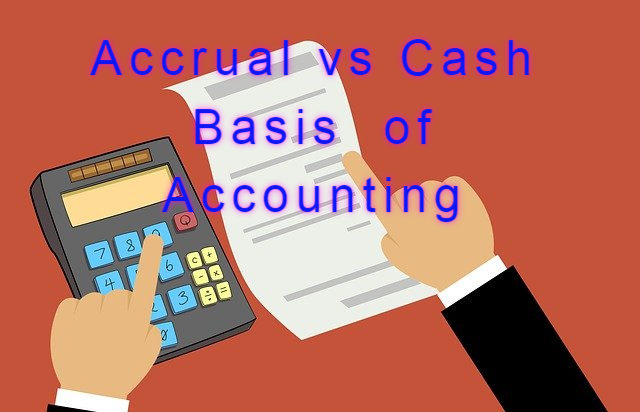Contents
Introduction to Accrual vs Cash Basis of Accounting
In the world of financial management, two fundamental methods stand out: the accrual basis of accounting and the cash basis of accounting. These two approaches play a pivotal role in how businesses recognize and record financial transactions. Accurate accounting is the cornerstone of informed decision-making, and choosing the right method can significantly impact a company’s financial insights and strategies. In this comprehensive guide, we delve into the intricacies of accrual and cash basis accounting, shedding light on their key differences, advantages, and implications for businesses aiming to enhance their financial clarity and optimize performance.
Accrual Basis of Accounting
The accrual basis of accounting revolves around the concept of recognizing revenues and expenses when they are incurred, regardless of when the actual cash transactions take place. In other words, financial transactions are recorded at the time they are earned or incurred, providing a more accurate reflection of a company’s financial health. This method aligns with the Generally Accepted Accounting Principles (GAAP) and is particularly suitable for businesses with complex operations or those that extend credit to customers.
Accrual vs Cash Basis of Accounting- In order to duly apply for bookkeeping, companies need to first choose the accounting system they will follow. Companies can choose between two introductory account styles the cash basis of accounting or the accrual basis of accounting. The difference between these types of Accounts is grounded on when you, the company, actually record the trade. ( plutocrat flux) or purchase ( plutocrat exodus) in the books.
Cash Basis of Accounting
The cash basis of accounting, on the other hand, focuses solely on the movement of cash. Under this method, revenues and expenses are recognized when cash is received or paid, making it a simpler approach, especially for small businesses. However, the cash basis may not provide a complete picture of a company’s financial performance, as it may not account for transactions that have been committed to but not yet completed.
Key Differences: Accrual vs. Cash Basis
The primary distinction between accrual and cash-based accounting lies in the timing of revenue and expense recognition. Accrual accounting records transactions when they occur, while cash accounting focuses on actual cash inflows and outflows.
2. Complexity and Accuracy:
Accrual accounting offers a more comprehensive and accurate view of a company’s financial position, as it includes all financial transactions regardless of cash flow. Cash accounting, while simpler, may lead to distorted financial insights as it disregards transactions in progress.
3. Applicability:
Accrual accounting is favored by larger businesses with intricate operations and those needing adherence to GAAP. Cash accounting is commonly employed by small businesses with straightforward cash transactions.
4. Financial Reporting:
Advantages of Accrual Basis Accounting
Businesses utilizing accrual accounting can analyze trends and plan for the long term, as they have a comprehensive overview of their financial operations.
3. GAAP Compliance:
Advantages of Cash Basis Accounting
This method offers an immediate view of cash availability, aiding in day-to-day financial management and decision-making.
3. Reduced Record-Keeping Burden:
Cash-based accounting requires less detailed record-keeping compared to the accrual method, saving time and resources.

Leave a Reply